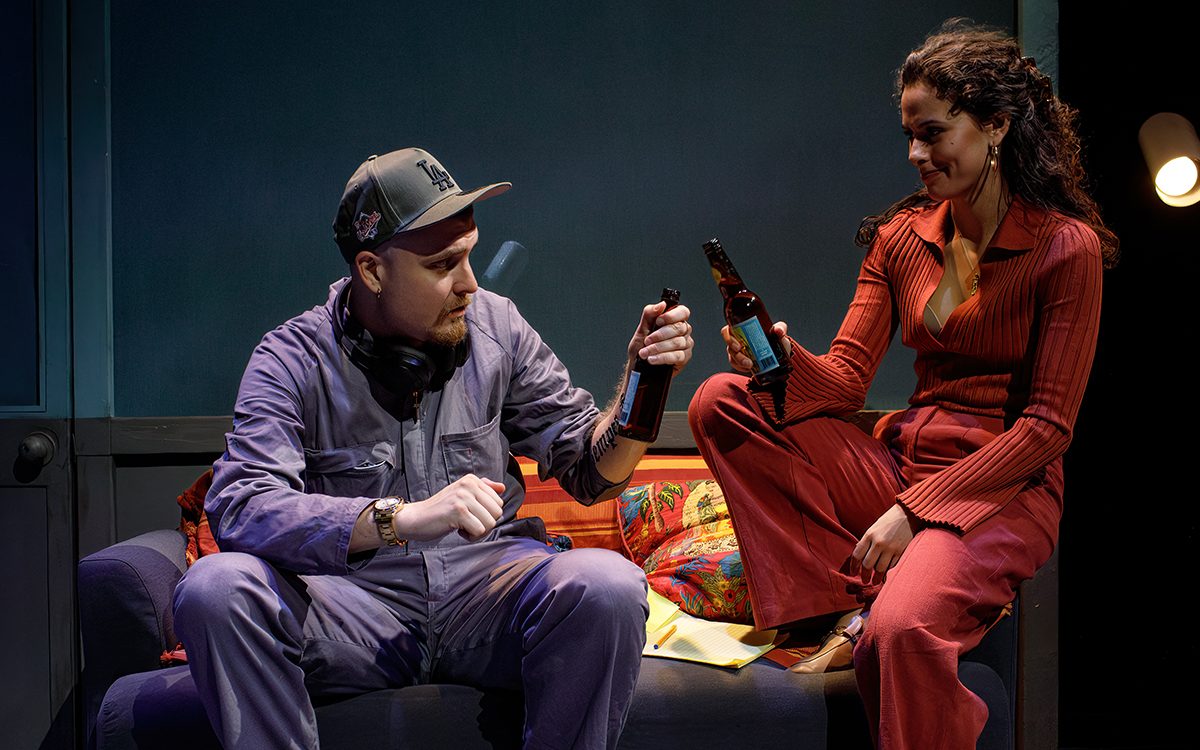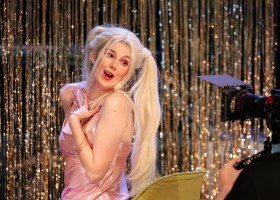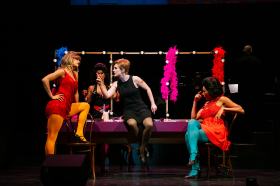The fight for fair representation in the workplace has never been just about presence. People from diverse backgrounds do not simply want to be in the “room where it happens”; they also want to be heard in that room, and to have what they say valued. This more complicated struggle is what Fade, written by Tanya Saracho and directed by Jeneffa Soldatić, explored in a fascinating, complex and successful manner.
In Fade, Lucia is a newly-hired screenwriter for a Hollywood TV show. Struggling to adapt to Los Angeles from her native Mexico, and as the only female and person of colour in her writing team, she finds solace in Abel, a fellow Mexican native and her building’s janitor. Though the two quickly strike up a friendship through their shared culture, Lucia’s progression up the corporate ladder challenges their relationship.
As Lucia and Abel respectively, Camila Ponte Alvarez and Caspar Hardaker were stunning. The script focuses exclusively on them and, despite the extreme differences between their characters – Lucia is more verbose, unreserved and dominant, whereas Abel is more soft-spoken and controlled – the two developed and maintained a great chemistry. This chemistry ultimately achieved three things: it let both actors shine, helped the plot move along nicely and kept the show engaging.
Similarly, their individual performances were also incredible. Alvarez expertly managed the big blocks of dialogue she was given, masterfully displaying Lucia’s isolation and feelings of alienation. Hardaker played up to Abel’s quiet nature, supplementing his limited words with strong physical acting. Notwithstanding this, the emotion he brought to his two longest monologues made them the show’s best moments.
The script itself is also worthy of acclaim and refreshingly honest, thanks to Saracho, who is a Los Angeles-based screenwriter, activist and entertainment industry professional of Mexican heritage. Though it deals with representation in entertainment, poking fun and frustration at the clichéd storylines and characters given to diverse actors, Fade also identifies some difficulties with addressing such issues.
These difficulties range from Hollywood’s endemic racism to the imposter syndrome that successful people from diverse backgrounds can feel. Given Saracho’s lived experience in Los Angeles, the script exudes authenticity as it explores these concepts. Though such authenticity makes the script a powerful one, some outdated political references and dragged-out moments of description do diminish this power slightly.
Read: Theatre review: June, Theatre Works
Ultimately, Fade achieved what it set out to do. The script constantly reinforces the idea of representation, but does so in an interesting and unexpected way. The cast brought this idea to light, and the production’s focus on them allowed for insightful analysis. In an ongoing struggle for representation, this inward look at the show business industry raised and explored some very interesting questions.
Fade, written by Tanya Saracho
Riverside Theatres, Parramatta
Director: Jeneffa Soldatic
Costume Designer: Rita Naidu
Set Designer: Melanie Liertz
Sound Designer: Daniel Herten
Lighting Designer: Jasmine Rizk
Stage Manager: Chloe Young
Dialect Coach: Linda Nicholls-Gidney
Cast: Caspar Hardaker, Camila Ponte Alvarez
Fade was performed until 5 August at Riverside Theatres; tickets from $23.
This review is published under the Amplify Collective, an initiative supported by The Walkley Foundation and made possible through funding from the Meta Australian News Fund.






